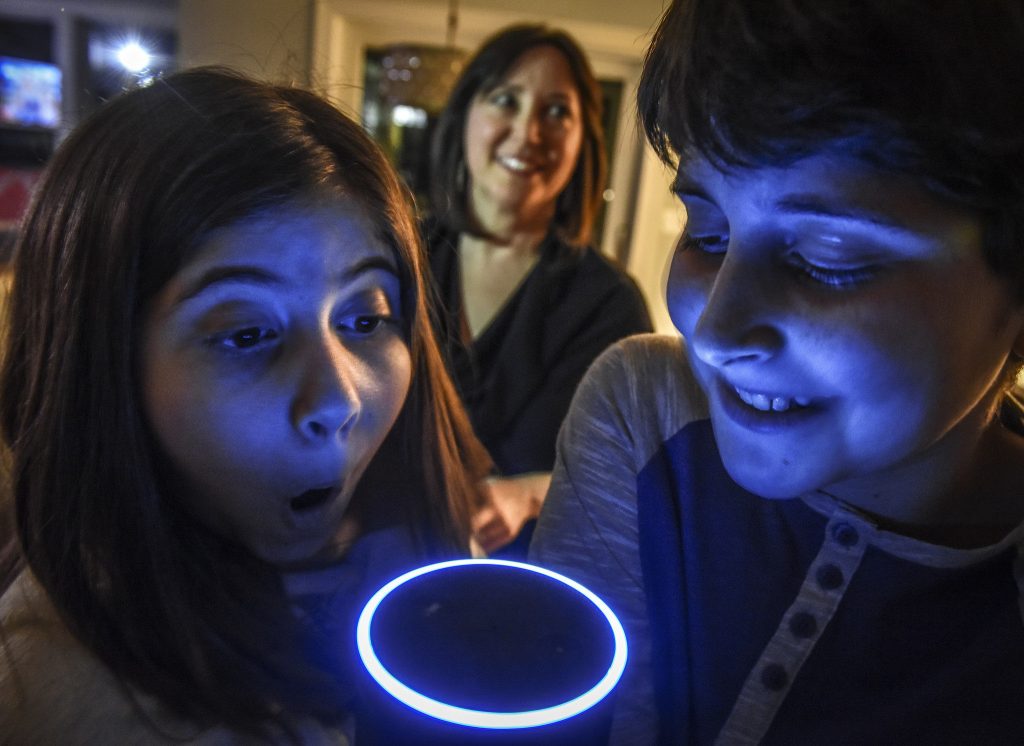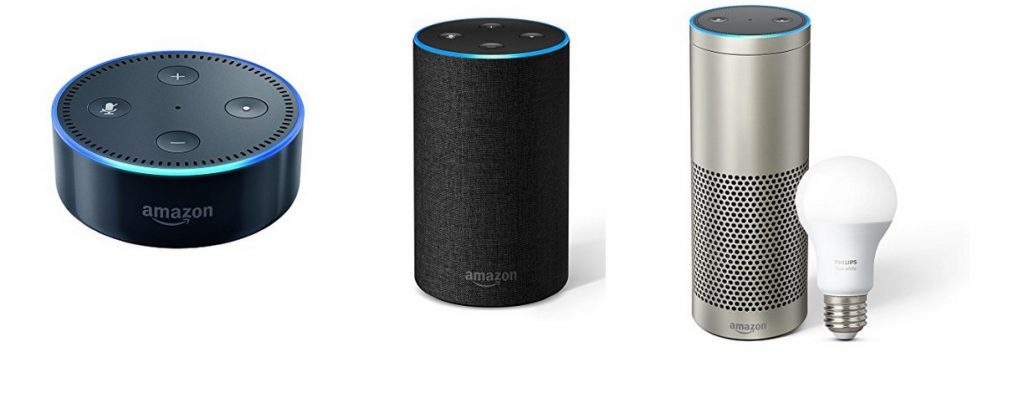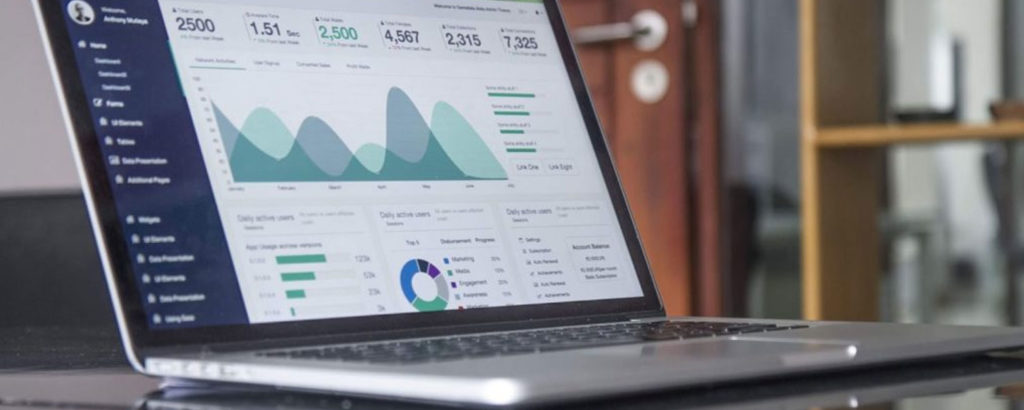At the risk of sounding like a bona fide tinfoil-hat-wearing conspiracy theorist, I have been thinking a lot lately about what Alexa knows about you. Perhaps a better question, is whether Alexa is smart enough to piece together what it knows, and figure out details about your life that you would rather people didn’t know about?
What does Alexa know?

To figure out whether or not Alexa can piece together your deepest darkest secrets, it is first necessary to establish what it is that Alexa knows about you. Unfortunately, this is easier said than done. We know that Alexa is almost always listening. We also know that Alexa collects a lot of data. What we don’t know is what data is actually collected or what Amazon does with all of that data.
So with that said, let’s examine a different, more basic question. Does Alexa know who you are?
Let’s assume for sake of this article that you have an Echo device and that it is your primary mechanism for interacting with Alexa. That device is linked to your Amazon account, so yes, in that sense Alexa does know who you are.
With that said however, there is nothing stopping someone else from giving Alexa a command. You may recall for example, that South Park trolled Alexa users by including Alexa commands in the show’s dialog. There have been several other examples of Alexa commands that were spoken on television causing devices all around the country to respond. I even seem to recall hearing a story of someone’s pet parrot speaking Alexa commands.
My point is that while Alexa may be tied to your Amazon account, it does not distinguish between your voice and someone else’s voice — at least not yet. There is a technology called voice print that can supposedly use a person’s speech patterns as a mechanism for identification. We don’t know what data Amazon actually collects, but if Amazon does collect voice data then they would definitely have enough data on hand to train a voice print engine.
I have no idea whether or not Amazon has any interest in voice print technology, but there is at least a possibility that voice print could be used on the backend to tell users apart from one another, even if Alexa does not actually expose that information to the users. Remember, Alexa supports the use of multiple accounts and if someone speaks the phrase “Alexa switch to” followed by their account name, then Alexa could conceivably use that sample to associate a voice print with an account.
What else might Alexa know?

Just for the sake of argument, let’s pretend for a moment that Alexa is able to tell who is who by the sound of their voice. If Alexa really is passively listening all the time, then an AI engine could theoretically be used to learn about how the people in a particular household interact with one another. The information could also conceivably be used to learn about each person’s interests and tastes. Remember, Amazon already attempts to learn your tastes in other ways. Just log into the Amazon storefront, and you will see product recommendations based on your past history.
Alexa also has the potential to learn about you, not just from your conversations, but also from connected devices. If your home is tied to Alexa through a number of smart devices, then Alexa could probably learn about your daily routine by looking at things such as what lights are turned on and when. Depending on how many smart speakers you have, and on the number and types of smart devices in your home, an AI engine might even be able to come up with a crude model of your home’s floor plan. Again, there is no evidence to suggest that Amazon is actually doing any of this, but it is theoretically possible to use sound triangulation and device interactions to figure out a home’s floor plan (at least partially), as well as who is in which room and when.
Can Alexa connect the dots?
How much information Amazon collects, and what it does with that information is a complete unknown. As a thought exercise however, let’s pretend for a moment that all of the capabilities that I have discussed so far actually exist. With that said, let’s also pretend that someone is having an affair, but has never openly admitted to it within an ear shot of Alexa. Does Alexa have enough information and intelligence to figure out what is going on?
AI engines learn by analyzing patterns. Therefore, Alexa might recognize that two people are in the same room together late at night. It might also recognize that this deviates from their normal routine. Without more information however, Alexa would have a tough time definitively determining that the two people were having an affair.
Sure, an AI engine might be able to use logic to put the pieces together and figure out what is going on. Remember though, an AI engine is only as good as the data that has been used to train it. Without adequate training, an AI engine can make some very incorrect (and sometimes amusing) determinations based on child like reasoning. I once saw a demonstration for example, in which someone had programmed an AI engine with a collection of basic facts and some philosophical quotes. The AI engine determined that if “God is love” and “love is blind” then Stevie Wonder must be god. How is that for flawed logic?
If Amazon wanted to use Alexa to determine if someone was having an affair, then it would essentially have to come up with a computer model of what an affair looks like. In other words, Alexa would have to know the characteristics of an illicit affair. Even then, the AI engine would only be able to determine that based on the available information there is an X-percent chance that a particular person is having an affair. The same goes for any other type of illicit behavior that Amazon might want to detect.
Alexa and your secrets: Two things needed

So what would it take for Alexa to discover your deepest darkest secrets? There are two things that would be needed. First, there would need to be a backend AI engine that has been specifically designed to detect that behavior, whatever it might happen to be. Otherwise, Alexa might be able to tell that something out of the ordinary is happening, but would likely have a hard time figuring out what is really going on.
Second, Alexa would need access to data — lots of data. While Alexa may possibly already have vast quantities of personal data at its disposal, the types of information that can be collected by an Echo device (or any other Alexa device for that matter) are somewhat limited. A much more complete picture of a person’s life could be constructed if Alexa were able to cross reference other data sources such as social media sites, Internet search histories, purchase histories, vehicle use history, and smartphone metadata such as its GPS position. If Alexa were able to cross-reference all of that data, it could probably begin to piece together all of the things like where we have been, with whom, and what we have been doing.
Featured image: Shutterstock



